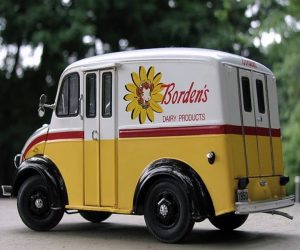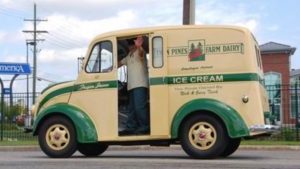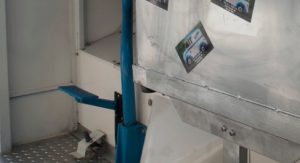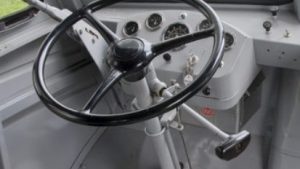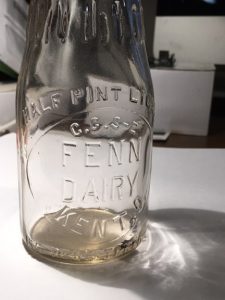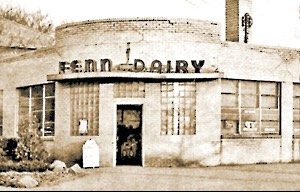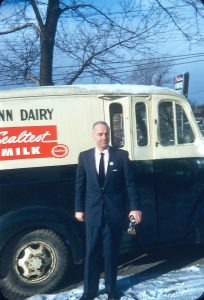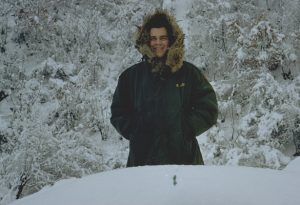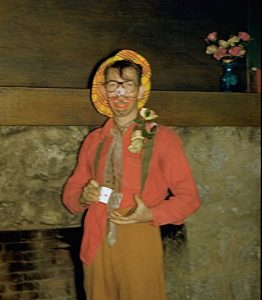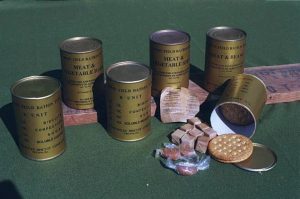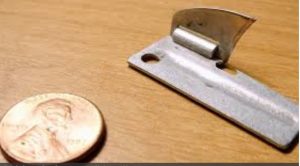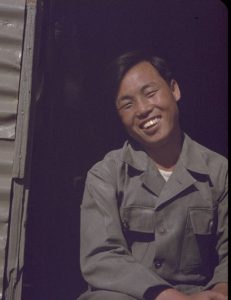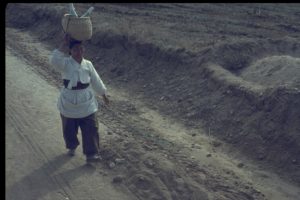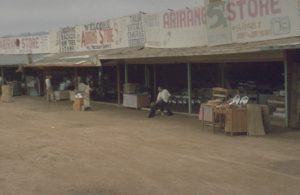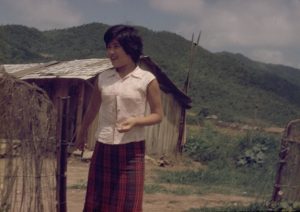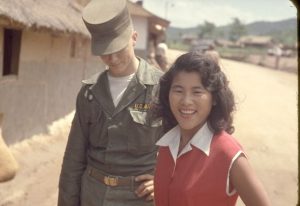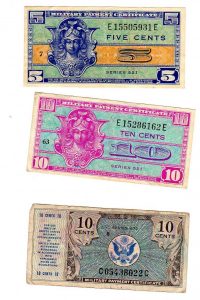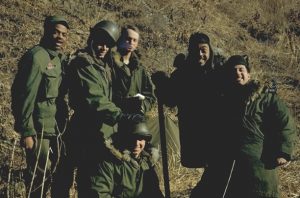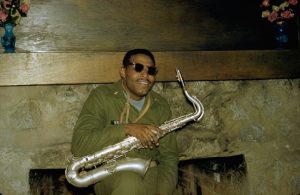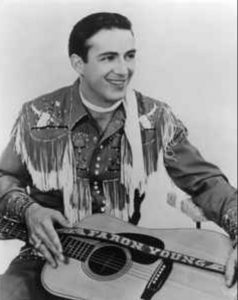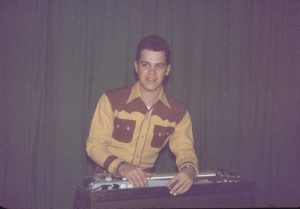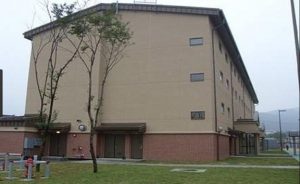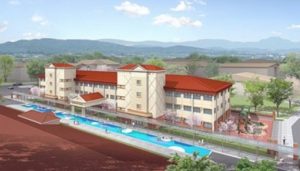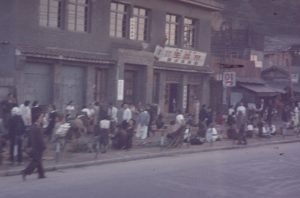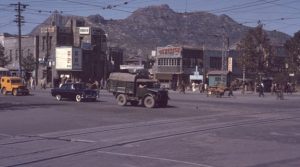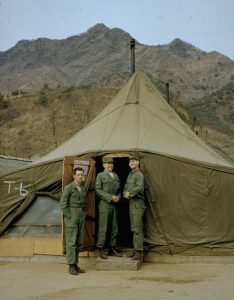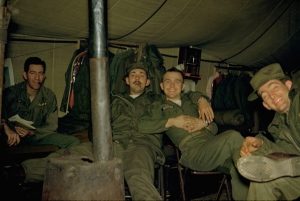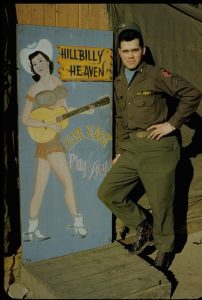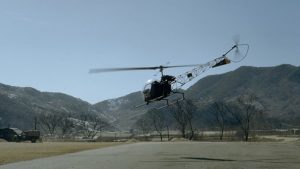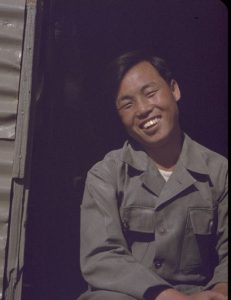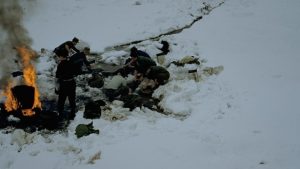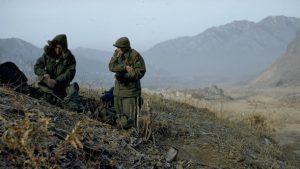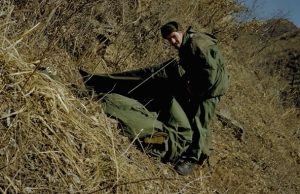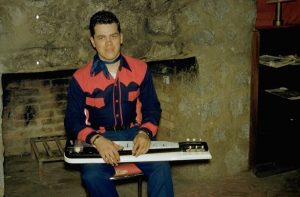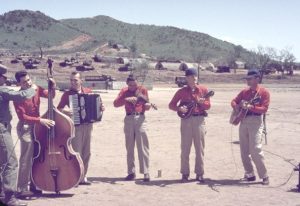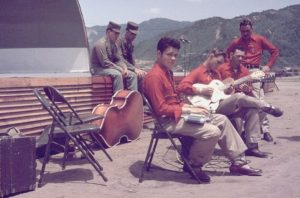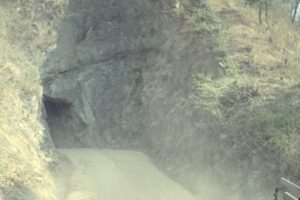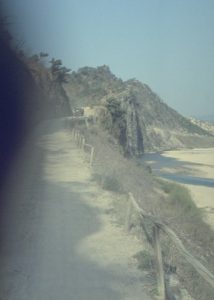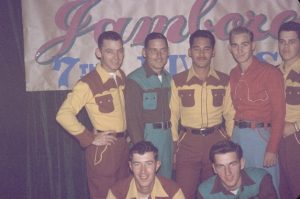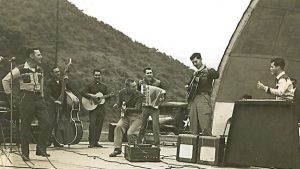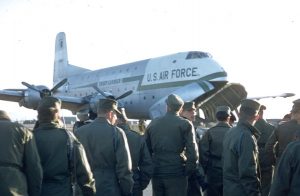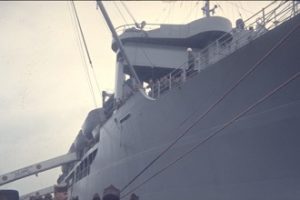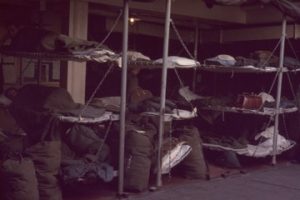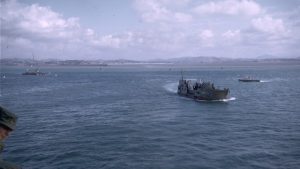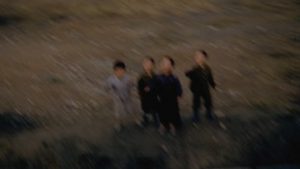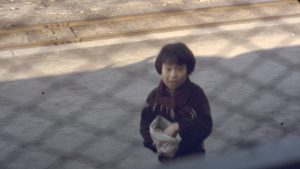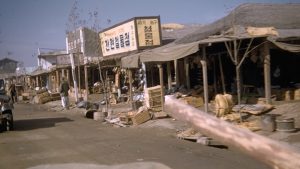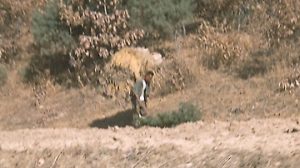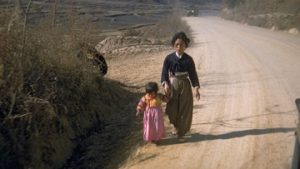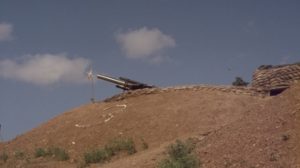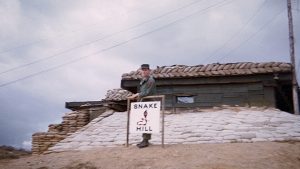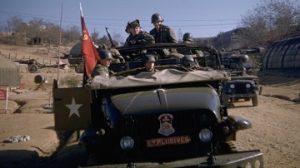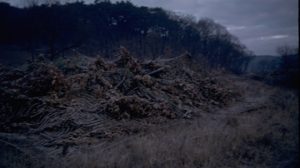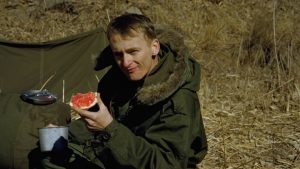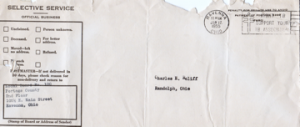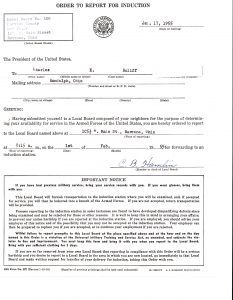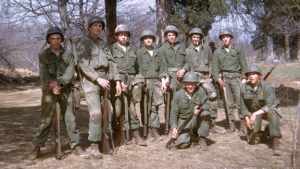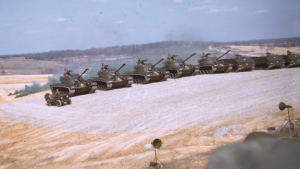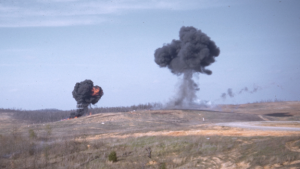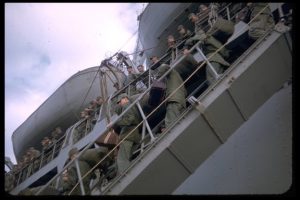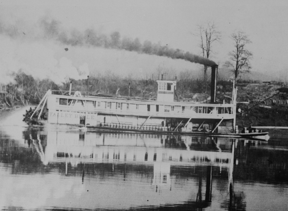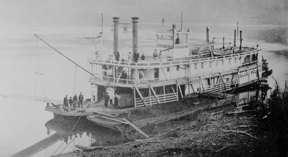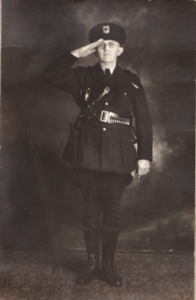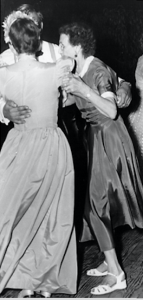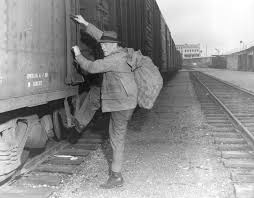Claude Lang was the oldest boy in the Lang family. During the time I lived with the Langs (1935-1943) he operated Lang’s Sunoco gas station where he dispensed gas and repaired cars and small appliances.
The kids in the Lang family were all musically gifted – except for Claude. He tried playing saxophone for awhile but it didn’t work. His strength was in designing and repairing mechanical things.
Claude built some of the first radio receivers in the area. These radios had large four- pronged vacuum tubes, several coils and knobs, and were powered by 3 or more large square batteries.
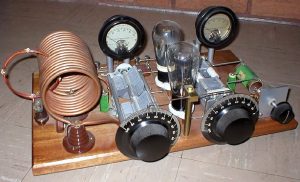
Home-made radio receiver with 2 vacuum tubes
With Claude’s help and by studying some of his books, I built a crystal radio receiver. It consisted of a coil made by winding wire on an oatmeal box, a variable condenser (we now call them capacitors), and a “cat-whisker” detector. This receiver needed no power but used headphones and a long antenna wire which we strung outside in the trees. Many nights in bed when I was supposed to be sleeping I would tune in WSM Nashville and listen to old time country music on my home-made crystal set. It amazed me that music could come 500 miles through the air and get into that little tangle of wires.
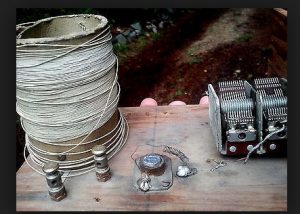
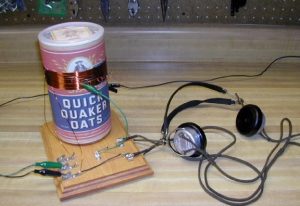
Crystal receivers made with oatmeal boxes
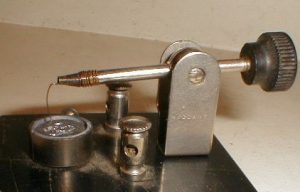
“Cat Whisker” detector
Claude had an old Model A Ford truck. The passenger’s seat was a wooden pop case and had no backrest. When he took me for a ride he would pop the clutch, take off quickly, and I would fall over backwards, he would then laugh heartily at my clumsiness.
Even when he was many years older I never saw him start out in a car without throwing gravel or burning rubber. He always ran or walked very rapidly wherever he went – his speech and movements were always quick. He moved as if he was constantly going to a fire. It was fitting that he helped establish the Randolph volunteer fire department and was its chief for more than 20 years. He could then get his speed fix by driving a fire truck.
Dad told me about a race car Claude built in the 20’s called “The Red Devil”. It would go over 70 mph when everybody else was going 25. I once saw a picture of it but I cannot locate it now. If I recall correctly it looked like a large stream-lined soap box derby racer.
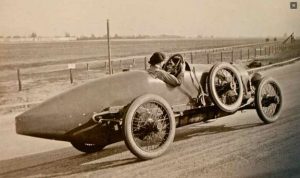
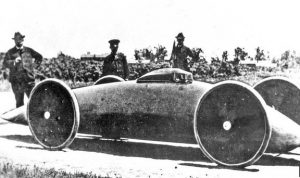
The picture of the “Red Devil” looked similar to the top picture but it had solid wheels like the racer in the bottom picture and no spare tire.
After Lang’s gas station closed Claude concentrated on repairing lawn mowers, farm equipment, pumps, gasoline engines, electric motors and generators . He had a thriving business. His shop was a mess, littered with old motors, used parts, strange one-cylinder gasoline engines with large flywheels, and other fascinating contraptions. These things were strewn all over the floor, and a visitor to his shop walked around in there at his own peril. If you needed a part no matter how old or rare, Claude could usually come up with it. This was my favorite place to hang out as a kid. I’m sure I drove him crazy with my barrage of questions, but he always took time to answer in great detail.
At one time Claude drove an International hopper truck for Herman Miller. With this truck he would spread gravel on the back roads of Portage County. Sometimes he invited me to ride with him. On one of these rides my mother sent along a quart jar of milk. She told me that because of the constant jarring and rough ride I would have butter in the jar when we returned. I carefully stashed the jar behind the seat in the truck. To my amazement, when we returned there was a large lump of butter floating around in the milk.
One time Claude was asked to repair a leaky gas tank. He ran water through it to wash out the gasoline, then had me help hold it while he attempted to fix the leak with solder and a blowtorch. My dad saw me holding the tank and immediately panicked. He told me to stand several yards away while the repair was going on and he took my place holding the tank. Soon there was a loud bang. Both Claude and Dad were blown across the road and the tank went 20 feet into the air – both ends blown out. Dad ended up with a broken thumb.
Claude was often very funny and had a quick wit. One time when I was older we attended a family gathering and were all sitting around the dinner table passing and sharing the food. At dessert time stewed pears came around the table. I took a few and handed the dish to Claude.
“Do you want a pear?”, I asked him.
“Gotta pair”, he quickly snapped back. Loud laughter followed.
Uncle Claude taught me many valuable things about mechanics and electricity. Because of his knowledge and example he was a strong positive influence in my life. His public service lives on through his sons and grandsons, who still run a repair shop in Randolph and serve as fire fighters around the area.
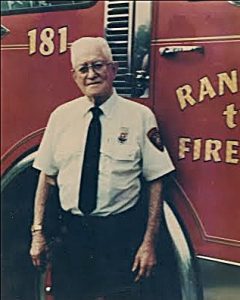
Chief Claude Lang

